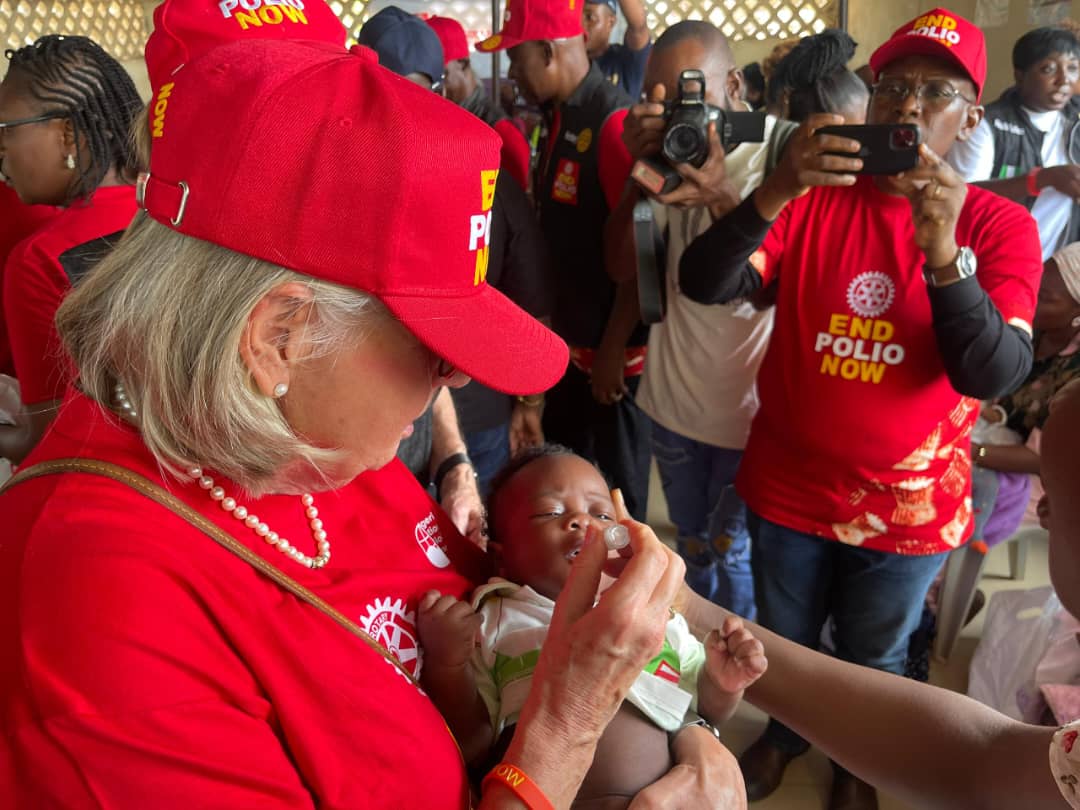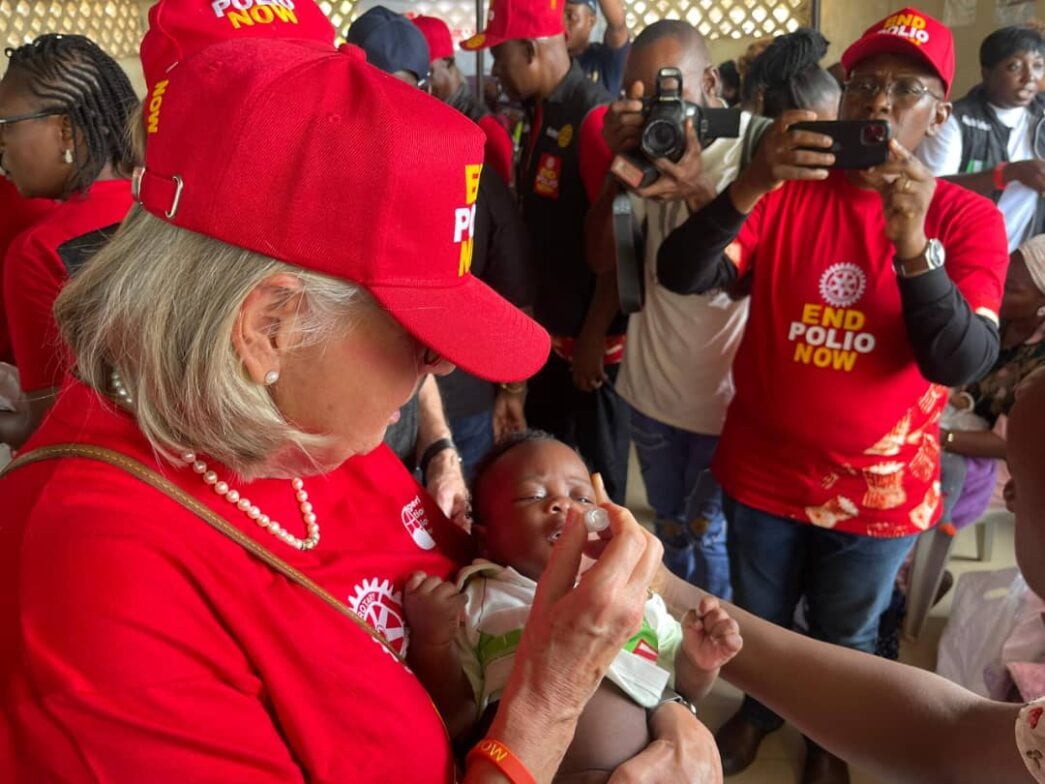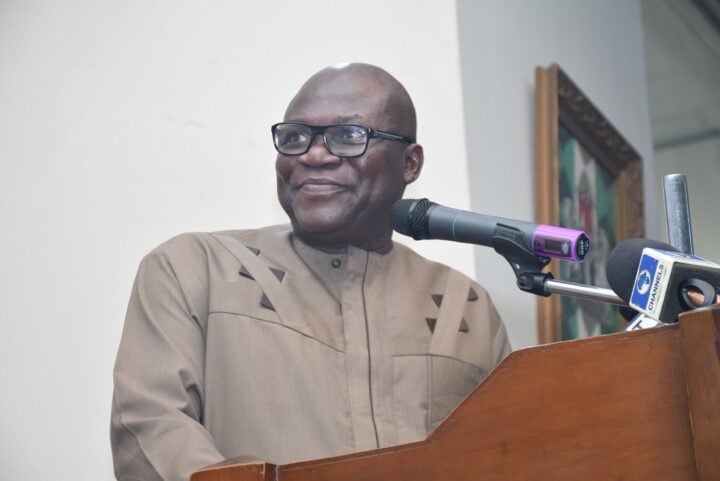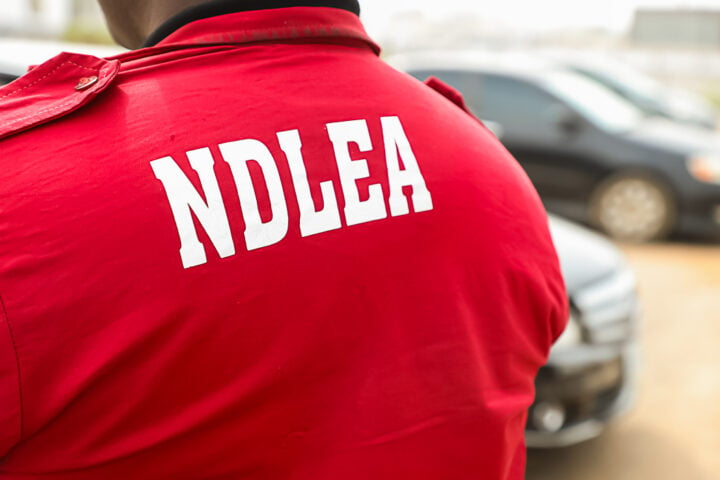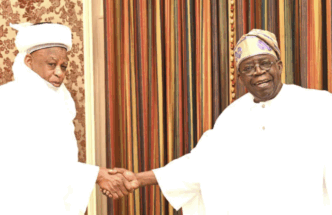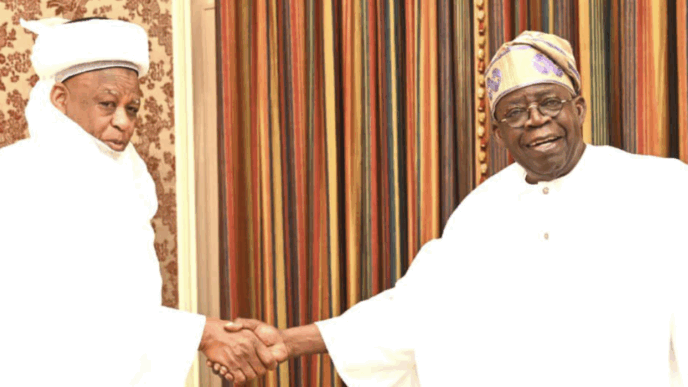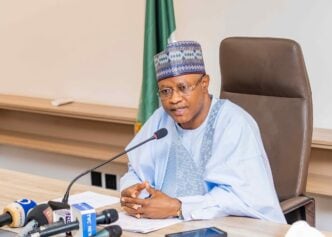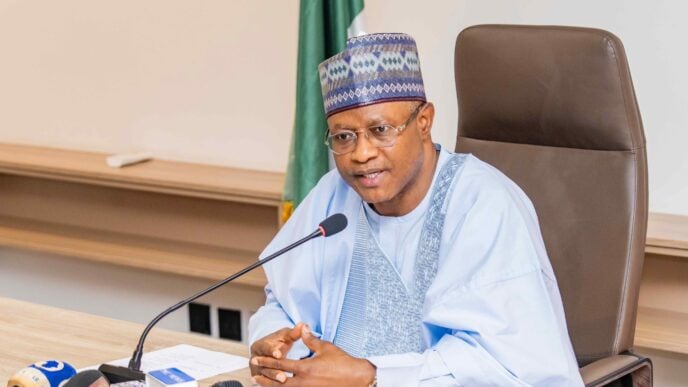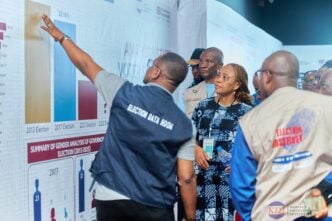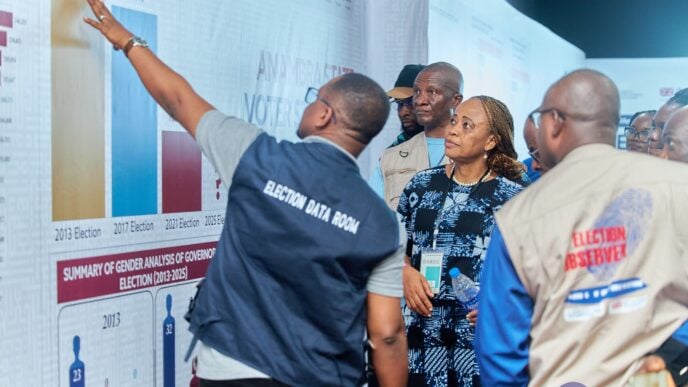Suzanne, wife of the chairman of Rotary Foundation, vaccinating a child against polio at AMAC Health Centre in Lugbe, Abuja
The Rotary Foundation has reaffirmed its commitment to sustaining Nigeria’s polio-free status and reducing maternal and child mortality across the country.
Speaking on Wednesday during a community dialogue and joint partner health outreach organised by Rotary International in Gwarinpa Village, Abuja, Holger Knaack, chairman of the foundation’s board, said, although Africa was certified polio-free five years ago, continued vaccination remains necessary until the disease is completely eradicated worldwide.
“Rotary’s goal is to eradicate polio, to kick it out of the world,” he said.
“As long as there are single cases in Pakistan and Afghanistan, we must continue vaccinating children.
Advertisement
“Even though Africa has been free of wild poliovirus for five years, our children are not safe until every child everywhere is protected.”
Knaack stated that every infant in Nigeria should consistently get polio vaccinations to guarantee that the virus does not reemerge, noting that the most populous African country is crucial to Rotary International’s worldwide health initiatives due to its size and influence.
“Three of our major projects are happening here in Nigeria – the polio eradication campaign, the ‘Together for healthy families’ initiative aimed at ensuring safe childbirth and reducing maternal and child deaths, and the Rotary healthy community challenge, which targets malaria, diarrhoea and pneumonia – the three biggest killers of children,” he said.
Advertisement
Ijeoma Okoro, trustee of the Rotary Foundation, said the organisation’s maternal and child health project has already reduced mortality by 28 percent in three years across four pilot states, including Ekiti, Nasarawa, Gombe, and the federal capital territory (FCT).
“Our goal is that no mother or child should die during childbirth,” Okoro said.
“We are expanding the programme to 10 states next year, thanks to the support from the Sir Emeka Offor Foundation.
“Community cooperation is everything. You can see the health workers, the mothers, and the traditional leaders participating; it’s because they’ve seen results.”
Advertisement
